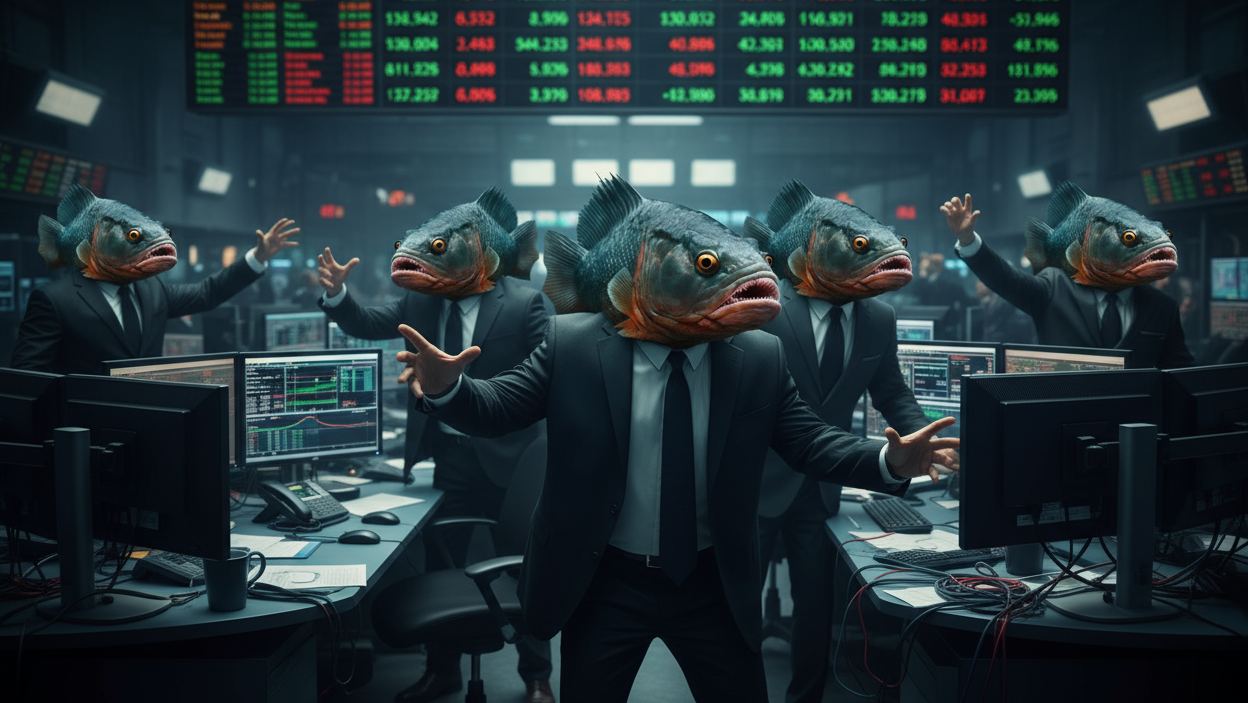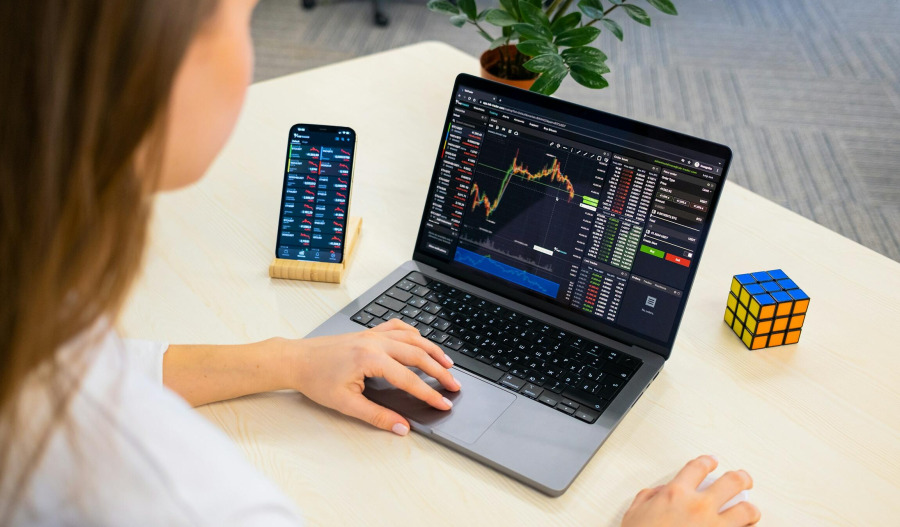What a week to be watching markets. The Fed finally delivered its first rate cut of 2025, TikTok drama got sorted (again), and everyone from uranium miners to luxury carmakers made headlines. But if you blinked, you missed half the action - because this week was absolutely chock-full of market-moving news.
Let's unpack the lot.
All the top moves, shakes, and red-hot takes from Azzet's editorial team are right here in your weekly business wrap every Friday (19 September, 2025).
The Fed's careful dance
The big kahuna this week was Wednesday's United States Federal Reserve meeting, where Chair Jerome Powell and his merry band of rate-setters delivered a 25-basis-point cut to 4%-4.25%. It was the first cut since December 2024, and frankly, it was about bloody time.
An 11-to-1 vote meant less drama than Wall Street expected, with newly minted Governor Stephen Miran - Trump's pick - being the lone dissenter. But here's the kicker: Miran wanted a bigger 50-basis-point cut, not a smaller one. That tells you everything about the political pressure cooker Powell's been operating in.
The dot plot revealed two more cuts expected this year, but only one in 2026 and one in 2027. Translation? The Fed's not in any rush to slash rates aggressively, despite Trump's social media demands for them to "CUT INTEREST RATES, NOW, AND BIGGER THAN [Powell] HAD IN MIND."
Powell called it a "risk management cut" - central banker speak for "we're being cautious but not panicking." The labour market's cooling fast though, with August adding just 22,000 jobs when economists expected much more. That's got the Fed's attention.
Meanwhile, judges ruled Trump cannot fire Fed Governor Lisa Cook over mortgage fraud allegations, adding another layer of political intrigue to an already tense relationship between the White House and the central bank.
TikTok: Finally sorted (we think)
After years of the will-they-won't-they social media drama, the U.S. and China finally reached a framework deal to keep TikTok operating stateside. Oracle, Silver Lake, and Andreessen Horowitz will take roughly 80% ownership of TikTok's U.S. business, with Oracle maintaining its cloud computing agreement.
Oracle shares climbed 1.5% on Tuesday when the news broke, though the stock's already up an eye-whopping 84% for the year after projecting US$144 billion in cloud revenue by 2030. Treasury Secretary Scott Bessent revealed the commercial terms had been ready since March, but China put things on ice after Trump's "Liberation Day" tariff blitz.
Trump and Chinese President Xi Jinping were set to finalise the deal on Friday, marking a rare diplomatic win amid broader trade tensions. Earlier, the U.S. and China continued talks in Spain on various trade issues.
Tech's Winners and sinners
Speaking of everything AI, this week served up a mixed bag. Nvidia investment news put a rocket under Intel stock - ironic given China accused Nvidia of violating anti-monopoly laws. CoreWeave shares rallied on news of fresh Nvidia orders, while CrowdStrike rocketed 13% on bold annual recurring revenue growth targets.
The cybersecurity firm's recovery from its earlier global outage debacle shows markets have short memories when companies all-of-a-sudden deliver the goods. Atlassian's acquisition spree continued with its US$1.5 billion DX purchase, while PayPal sided with Google for a new AI shopping agent.
Baidu stocks soared 18.6% on AI partnership funding plans. Meanwhile, Rolling Stone sued Google over AI overviews and Microsoft avoided an EU fine with strategic price cuts and nifty unbundling moves.
And Workday's US$1.1 billion acquisition of Sana marked its third major human resources-focused AI deal, proving software giants are still in a shopping mood.
Mining's resourcefulness
The mining sector saw serious capital movements this week. Orion Minerals secured funding of US$250 million from Glencore, then separately landed a US$5 billion government commitment from the U.S. for critical minerals development. That's the kind of strategic positioning that gets investors excited about supply chain diversification.
Mission Critical saw uranium spring into another bull run as nuclear sentiment continues heating up. But it wasn't all good news - New Hope's profits fell as global coal prices declined, and Santos' bidder withdrew its bid because the buzzer went before a deal was finalised.
Anglo American and BHP announced nearly 1,000 job cuts in Queensland - an admission of the coal sector's ongoing battle with cost pressures and commodity volatility.
Aussie moves and shakes
Closer to home, Australia committed $500 million to boost its green iron industry, while the Albanese government pledged another $1.1 billion, thrown at the green energy transition via cleaner fuel initiatives.
But environmental tensions flared as Woodside sparked criticism from climate groups over its North West Shelf approval. The eternal Aussie dilemma: economic development versus environmental concerns.
ANZ was fined $240 million for widespread misconduct, adding to the banking sector's regulatory headaches. Part-timers held the jobless rate steady, though underlying labour market conditions remained soft.
Sydney Airport's new expansion plans marked its biggest project since 2000, betting on long-term travel recovery. And in a sobering climate reality check, over 1.5 million Australians are now at risk from rising sea levels.
European dramas
Across the pond, things got a little messy.
Fitch cut France's credit rating and hinted at more downgrades to come, while French unions protested budget cut plans. The UK economy stalled in July, fuelling tax hike speculation, though large U.S. tech firms announced billions in UK investments as a counterbalance.
In geopolitical news, a second Russian drone breached NATO airspace, while Ukraine attacked a refinery targeting major Russian oil infrastructure. The EU is considering an energy phase-out faster from Russia and imposing sanctions and tariffs on Israel, as Israel launches further offensives on Gaza City.
UK confirms fighter jets will deploy to help Poland, showing NATO solidarity remains strong despite regional tensions.
Corporate carousel
The corporate world kept spinning. Trump backed ending reports - specifically quarterly earnings ones - a move that could reshape how public companies communicate with investors. Musk's trillion-dollar Tesla hubris may face a make-or-break moment as the EV, robot and space giant navigates production challenges.
Gucci named Bellettini as CEO as the luxury brand seeks a turnaround, while Spirit cut 25% off flights after its second bankruptcy. Aston Martin celebrated the anniversary of its Volante model's 60th year - nice timing, given the luxury car market's resilience.
FedEx beat estimates amid its cost reduction plan, Lyft shares soared following a Waymo partnership, and Webtoon shares jumped on a Disney comics deal. The U.S. sued Ticketmaster for illegal ticket resale methods and ordered Delta and Aeromexico to end their joint venture.
US economic indicators
The economic data flow offered mixed signals. U.S. retail sales rose 0.6% in August, ahead of forecasts, while builder sentiment stayed steady with expectations of higher future sales. But housing starts plummeted alongside building permits in August, suggesting the American property market is still struggling with higher rates.
There was a China retail sales miss alongside industrial output estimates, adding to concerns about the world's second-largest economy. That's not great news for global growth expectations or commodity demand.
Trump's arrival in the UK for his second state visit dominated headlines too, as did his US$15 billion defamation lawsuit against The New York Times.
Rapid rise passive investing got fresh scrutiny this week, with analysts questioning whether index fund dominance is distorting price discovery mechanisms. That's a conversation worth following as passive strategies continue hoovering up market share.
And finally, Hyundai announced plans to produce more cars in the U.S. amid tariff pressures - another strong signal of South Korea's prerference as team captain.
See you on Monday.



